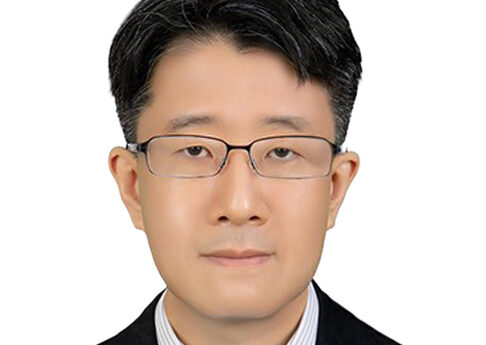2019年03月11日
BDA’s Matthew Doull speaks to SCMP about how the trade war is killing overseas investment by Chinese, US tech companies
South China Morning Post
Trade war is killing overseas investment by Chinese, US tech companies, analysts say
- Clash over tech could lead to future research split between Silicon Valley, Shenzhen
- Chinese investment in US semiconductor, hardware segments dropped by nearly five times in 2018
Efforts by the United States to block Chinese access to its latest technology is weighing on cross-border investment in both countries as tensions over trade and technology policies have escalated between the superpowers in the past year.
The stand-off between the world’s two largest economies could ultimately cause a long-term split in future research and development between rival tech leaders based in Shenzhen and Silicon Valley, according to analysts and market observers.
Investments by Chinese firms in the American semiconductor and technology hardware segments dropped by nearly five times in 2018, to US$203.4 million from US$1.03 billion the previous year, according to the latest data from S&P Global Market Intelligence.
Software and services was the only area within the US technology sector to see a significant increase in Chinese-affiliated investment last year – driven primarily by an US$8 billion investment in Uber by a group that included Chinese tech giant Tencent Holdings, according to S&P Global.
Matthew Doull, head of the internet and digital media practice at the investment banking adviser BDA Partners in Hong Kong, said American and Chinese companies considering cross-border mergers are holding back on deals even if they “are not by any stretch sensitive from a military or intelligence perspective.”
“My experience is that on an informal basis it’s creeping into everything,” Doull said. “For us – digital media, travel tech – frankly rather benign consumer oriented businesses, we see people on both sides self censoring.”
The drop in Chinese investment comes after US President Donald Trump slapped tariffs on about half of all of the country’s exports to America in a sharp-elbowed confrontation between the two countries.
US lawmakers have raised the alarm over China’s efforts to acquire technology and advance its manufacturing base, in particular its “Made in China 2025” programme. The initiative is designed to increase domestic production in a number of key technology sectors, including semiconductors and robotics.
In response, the US has increased its scrutiny of foreign-led mergers and investments and is crafting new rules to restrict the ability of Chinese companies and others to export technology.
It has also banned government agencies from buying equipment from Chinese telecommunications companies Huawei and ZTE. The US is separately pursuing criminal charges against Huawei ranging from financial fraud to violating American sanctions against Iran.
At the same time, fewer funds have been available for investment as Beijing has limited the ability of Chinese companies to bankroll overseas transactions as part of a deleveraging campaign begun in 2016 that has seen some companies forced to sell their foreign holdings.
Technology is becoming “the new battleground” with pockets of development forming around the world to compete with each other, said Christopher Kelly, who heads the mergers and acquisitions practice in Asia at the law firm White&Case.
“Can you imagine an AI technology developer wanting to buy the piece of technology it doesn’t have from a Silicon Valley producer? It’s not going to happen,” Kelly said. “And vice versa, a Silicon Valley AI tech company is not going to be able to buy something in Shenzhen.”
He said the firm has seen a “very abrupt and significant slowdown” of Chinese investment into the US.
“We remain optimistic about M&A and, in particular, investment by the financial sponsor community because every time the barriers come down and the game changes, there are opportunities that investors (for various reasons) didn’t experience before,” Kelly said.
The US is not alone in its concerns about Chinese investment. European authorities also are increasing their scrutiny of deals involving sensitive technologies and critical infrastructure.
According to a new report by the Rhodium Group and the Mercator Institute for China Studies, foreign direct investment by Chinese firms in the European Union fell by 40 per cent to €17.3 billion (US$19.4 billion) last year.
The researchers estimated that 82 per cent of Chinese M&A transactions in Europe last year would have been subject to additional review by regulators under new rules that are expected to be implemented over the next 18 months.
“More complex regulations for inbound investments are probably only the first step in a broader overhaul of Europe’s policy toward trade and investment with China,” said Thilo Hanemann, Mikko Huotari and Agatha Kratz, the report’s authors. “Current debates indicate that some European leaders would like/are considering reforms in other areas as well, including export controls for dual use and critical technologies, data security and privacy rules, procurement rules and competition policy.”
Against this backdrop, the number of deals by Chinese firms acquiring American tech companies last year dropped by two thirds to 11 deals worth US$688.8 million, including debt, according to Refinitiv, the financial data provider. There were 33 deals worth US$1.75 billion in 2017, according to Refinitiv.
US acquisitions of Chinese companies also are down, with 10 transactions worth US$50 million completed last year, according to Refinitiv. That compares with 14 deals worth US$565.1 million in 2017.
In 2018, the US expanded the power of the Committee on Foreign Investment in the United States to review mergers, and lowered the threshold to examine foreign investments in certain industries.
“As a result, Chinese [venture capital] firms are adapting their investment strategy and are turning to other markets; we expect investment in Germany, the [United Kingdom], South Korea, Taiwan and Japan to receive a boost,” Eleanor Olcott, China policy analyst at TS Lombard in London, said in a research report.
One area of uncertainty for the technology industry is how the US will implement new export control legislation that targets “emerging and foundational technologies”, Olcott said.
Olcott noted that China accounts for half of all global semiconductor sales, but only 30 per cent of that demand is met domestically. Most present-day chip sales should not be subject to export controls, but that could come into play in the development of more advanced technology, she said.
“When it comes to [artificial intelligence], however, Chinese firms rely on US chips both to train models from data and to run AI algorithms on the end device,” Olcott said. “It is likely that Chinese firms that engage in AI development – including Huawei, SenseTime and Hikvision – will be affected. For Silicon Valley firms seeking to circumvent the restrictions, they will have to come up with adaptive strategies such as relocating operations outside of the US.”
Pascale Fung, director of the Centre for Artificial Intelligence Research at Hong Kong University of Science and Technology, said at a conference in Hong Kong last week that researchers in the US and China – even if their governments do not see eye to eye – would need to continue to work together on AI research to avoid a future “AI dystopia”.
She said that 75 per cent of the economic benefit from AI over the next 20 years is expected to come from the US and China, which currently spend the most in terms of percentage of gross domestic product on research and development.
Doull, of BDA Partners, said he hopes the two countries can reach a resolution that removes the uncertainty “so that people in business can make investment decisions”.
“It doesn’t seem to me like a world in which you have two entirely competing parallel ecosystems – at the centre of one is the United States and at the centre of the other is China – is that appealing a world in which to live,” Doull, of BDA Partners, said.
About BDA
BDA Partners is the global investment banking advisor for Asia. We are a premium provider of Asia-related advice to sophisticated clients globally, with over 20 years’ experience advising on cross-border M&A, capital raising, and financial restructuring. We provide global reach with our teams in New York and London, and true regional depth through our seven Asian offices in Mumbai, Singapore, Ho Chi Minh City, Hong Kong, Shanghai, Seoul, and Tokyo. BDA has deep expertise in the Chemicals, Consumer & Retail, Health, Industrials, Services and Technology sectors. We work relentlessly to earn our clients’ trust by delivering insightful advice and outstanding outcomes.
BDA Partners has strategic partnerships with William Blair, a premier global investment banking business, and with DBJ (Development Bank of Japan), a Japanese Government-owned bank with US$150bn of assets.



